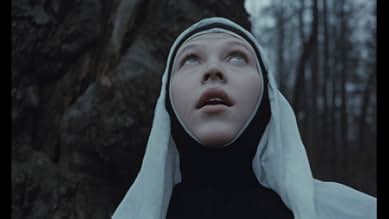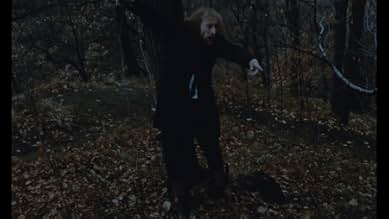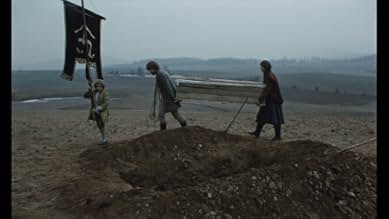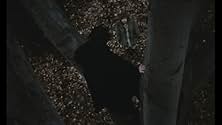Young Polish noble Jakub, freed during 1793 Prussian invasion, experiences father's death, betrayal. Traumatized, he follows his savior, committing brutal murders across the country.Young Polish noble Jakub, freed during 1793 Prussian invasion, experiences father's death, betrayal. Traumatized, he follows his savior, committing brutal murders across the country.Young Polish noble Jakub, freed during 1793 Prussian invasion, experiences father's death, betrayal. Traumatized, he follows his savior, committing brutal murders across the country.
- Director
- Writer
- All cast & crew
- Production, box office & more at IMDbPro
Storyline
Did you know
- TriviaThe film was banned in communist Poland.
- ConnectionsFeatured in Brows Held High: Häxan (2012)
Featured review
During the joint Russian,German (Prussian) and Austrian invasion to Poland in 1793, a young Polish nobleman Jacob is saved from the imprisonment by a stranger who wants in return to obtain a list of Jacob's fellow conspirators. It is a bargain. Maybe implicitly, Jakub sold his life to this stranger, following his mysterious savior across the country, Jacob becomes a witness to chaos and moral corruption that is ensuing the partition and dissolution of Poland by the neighbor countries. People everywhere seems to gone mad and crazy, including Jacob's own family and his beloved girlfriend.
Being apparently demented by what he has seen, he, amidst his own delerium of his consciousness fading away, commits noumerus of gory and enigmatic killings derailing in social and political turmoil by mass murders, leading to insanity and desperation. This stranger, who acts as a guide, displays horrific sights of this physically and morally destroyed 18th-Century nation, whispering the actions of Jakub and acting as an evil motor. But there is free will in Jakub as well, which remains unquestionable.
The film was immediately banned by the censors of the then-communist Polish government and the director was soon forced to leave Poland. Almost two decades later, in the last days of communism in Poland, Zulawski have somehow obtained a copy of his film from censorship vaults and immediately presented it during nearest film festival in Tokyo in 1988. Albeit very late, the film premiere has had received a lot of applause from viewers and film critics alike.
Zulawski's invigorating style shines as brightly as ever, his vision of insanity displayed at every corner, its a world fueled by animal instincts and sexual deviance, permeated with enough filth to make the devil dance in joy. Where each frame is filled with details that are caught by the eye either consciously or subconsciously. Camera management is aggressive and intrepid, never giving up, never hesitating to the depiction of scandalous content, shifting tones and creating authentic psychological horror with remarkable success.
It is as ugly as it is mesmerizing. Andrzej Zulawski's cinema is the definition of madness, the real meaning of insanity, and the truth of the quest of craziness. This film Diabel is flawlessly made, perfectly filmed, completely insane, profoundly depicted. With the typical emotional attacks of anger and madness expressed by the various characters. He represents an absolute and incontrovertible chaos, subjecting the vision to a frenetic and frustrating horror. In Diabel, Zulawski seems to point out we should stop worrying about the Devil since it is already Hell on Earth...
Being apparently demented by what he has seen, he, amidst his own delerium of his consciousness fading away, commits noumerus of gory and enigmatic killings derailing in social and political turmoil by mass murders, leading to insanity and desperation. This stranger, who acts as a guide, displays horrific sights of this physically and morally destroyed 18th-Century nation, whispering the actions of Jakub and acting as an evil motor. But there is free will in Jakub as well, which remains unquestionable.
The film was immediately banned by the censors of the then-communist Polish government and the director was soon forced to leave Poland. Almost two decades later, in the last days of communism in Poland, Zulawski have somehow obtained a copy of his film from censorship vaults and immediately presented it during nearest film festival in Tokyo in 1988. Albeit very late, the film premiere has had received a lot of applause from viewers and film critics alike.
Zulawski's invigorating style shines as brightly as ever, his vision of insanity displayed at every corner, its a world fueled by animal instincts and sexual deviance, permeated with enough filth to make the devil dance in joy. Where each frame is filled with details that are caught by the eye either consciously or subconsciously. Camera management is aggressive and intrepid, never giving up, never hesitating to the depiction of scandalous content, shifting tones and creating authentic psychological horror with remarkable success.
It is as ugly as it is mesmerizing. Andrzej Zulawski's cinema is the definition of madness, the real meaning of insanity, and the truth of the quest of craziness. This film Diabel is flawlessly made, perfectly filmed, completely insane, profoundly depicted. With the typical emotional attacks of anger and madness expressed by the various characters. He represents an absolute and incontrovertible chaos, subjecting the vision to a frenetic and frustrating horror. In Diabel, Zulawski seems to point out we should stop worrying about the Devil since it is already Hell on Earth...
- XxEthanHuntxX
- Dec 29, 2020
- Permalink
- How long is The Devil?Powered by Alexa
Details
Contribute to this page
Suggest an edit or add missing content















